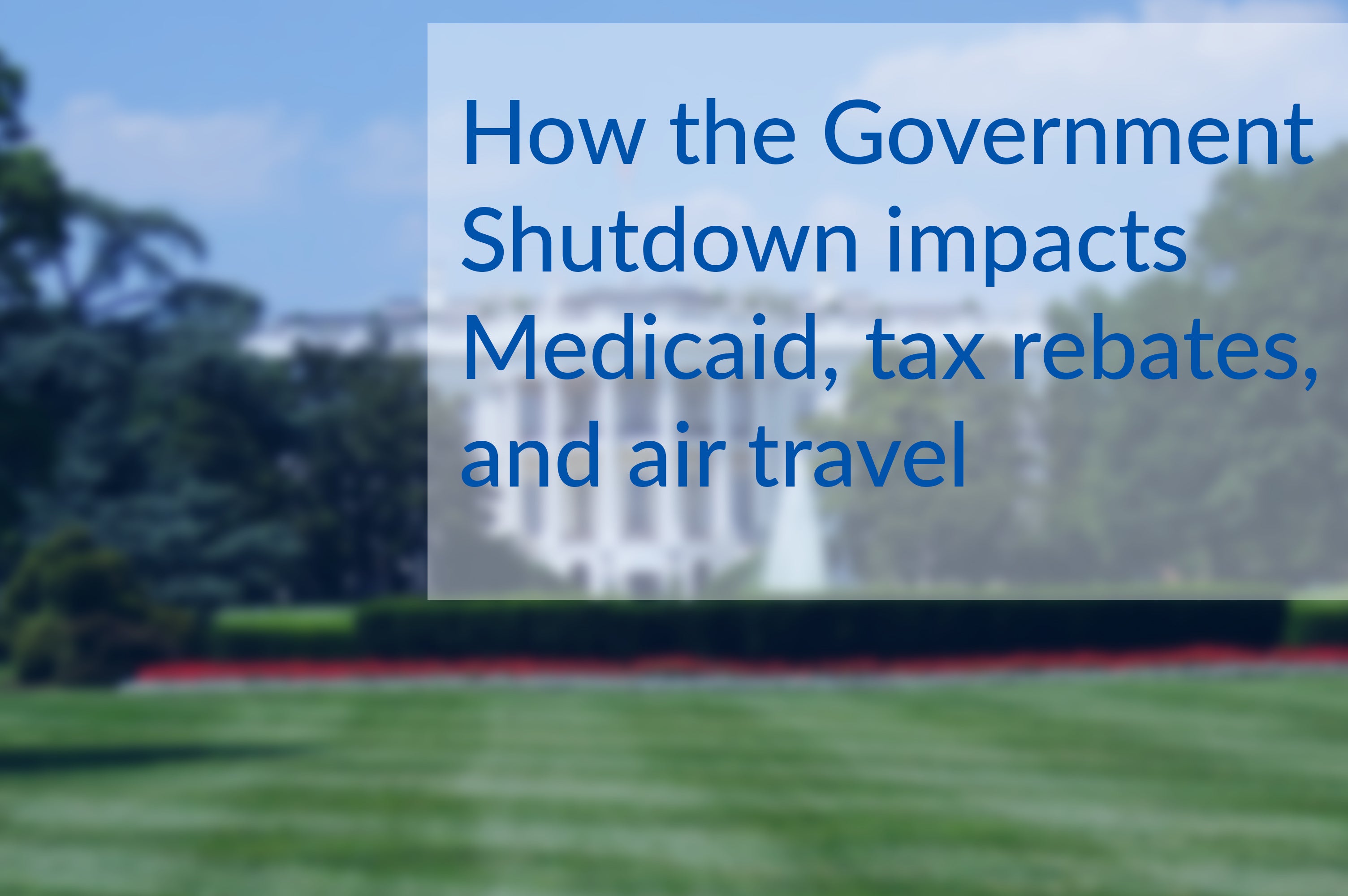COBRA Confusion
 Bill Bregar thought he was doing everything right. With his former employer’s health insurance due to run out in May 2009, he believed that his visit with his wife to the Social Security office to sign up for Medicare would be routine. He was wrong. They were told they wouldn’t be able to get Medicare coverage until July 2010. Suddenly, in their late 60s, they faced the prospect of 13 months without health insurance. “My reaction was disbelief,” he recalls. “My wife went into shock.”
Bill Bregar thought he was doing everything right. With his former employer’s health insurance due to run out in May 2009, he believed that his visit with his wife to the Social Security office to sign up for Medicare would be routine. He was wrong. They were told they wouldn’t be able to get Medicare coverage until July 2010. Suddenly, in their late 60s, they faced the prospect of 13 months without health insurance. “My reaction was disbelief,” he recalls. “My wife went into shock.”
Bregar, a former software engineer from Lake Oswego, Ore., and his wife, Ruth, had run afoul of an obscure rule that is little understood by Medicare beneficiaries, employers, health insurance companies and even some Social Security and Medicare officials. And their experience has led directly to their congressman, Rep. Kurt Schrader, D-Ore., proposing legislation to have the rule changed.
Obscure rule hurts beneficiaries
Under current law, working Americans with employer health coverage can postpone signing up for Medicare until after 65. When they retire, accept a buyout or are laid off, they then get an eight-month special enrollment period to sign up for Medicare Part B (which covers doctors visits and other outpatient services) immediately and without penalty.
But many people in these circumstances are able to extend their employer coverage for a year or two under a 1986 law known as COBRA, which is what Bregar did.
What they may not realize is that waiting until their COBRA coverage expires to enroll in Part B disqualifies them from the eight-month grace period. Instead, they must wait to sign up during open enrollment, from Jan. 1 to March 31 each year, and their coverage won’t begin until the following July. They also get hit with a late penalty, an extra charge added permanently to their Part B premiums.
The COBRA catch
Social Security officials explain that under the law, people can postpone signing up for Part B without penalty only while they have group health insurance provided by an employer for whom they or their spouses are still working. Therefore, time on COBRA—used after employment has ended—does not entitle them to special enrollment.
Although this rule is 24 years old, in recent months AARP and other consumer help organizations have both seen a significant uptick in the number of calls complaining about it.
The Medicare Rights Center, which tracks calls involving Part B enrollment problems, reports that this year more than 21 percent of these relate to the COBRA issue. The timing may be due to the fact that when the economic recession hit in 2008, more older Americans lost their jobs and opted for COBRA coverage without thinking to sign up for Part B—and are only now facing the consequences. Nobody yet knows how many people are affected.
Confusion, even among experts
“It’s clear from the number and types of calls we get on our hotlines that there is a lot of confusion about how Medicare works with COBRA,” says Joe Baker, president of the Medicare Rights Center. “Not only are individuals confused, but employers are as well, and the price of the confusion can be devastating for some.”
Yet the crucial Medicare regulation barring a special enrollment period for people whose COBRA coverage is ending is rarely publicized. It is not mentioned in the Department of Labor’s guidance for people considering COBRA. It is mentioned briefly on page 24 of the official handbook, “Medicare & You 2010”—but without any warning of a delay in Part B coverage. It isn’t included in Social Security’s general website information on enrolling in Medicare or in its frequently-asked-questions section—though entering “COBRA” into the site’s search engine leads to an explanation.
But many people don’t go to these sources. Instead, they rely on information from their employers, their insurance company or Social Security officials. Bregar, who accepted a voluntary retirement package from the Hewlett Packard Company in 2007, consulted all three. On an earlier visit to the local Social Security office when he turned 65, he says the official told him he didn’t need to sign up for Part B until his employer insurance ended. “What he didn’t say,” Bregar adds, was that this wasn’t true “if I stopped working at any time even if my health insurance were still in effect.”
After the bombshell landed, Bregar repeatedly called Social Security. Among some 15 conversations with officials, he says, “two of them told me exactly the same wrong information as I was given in the first place.”
But one suggested he apply for “equitable relief.” This little-known option allows Social Security to investigate cases and reverse decisions if it finds an official has given faulty information. Bregar wrote a letter applying for relief and took it down to the office. “The lady there said: ‘Well, I’m happy to forward this on, but I can tell you I’ve been here for 26 years and I’ve only seen one case resolved in favor of the applicant,’ ” he recalls.
At that point, Bregar called the office of his congressman, Schrader. His staff, who’d never heard of the rule either, became interested. Their calls resulted in a “congressional inquiry” label attached to the Bregars’ Social Security file. Meanwhile the couple, frantically trying to find insurance, discovered that only one policy—costing around $1,700 a month—was available to them. On the day they were due to sign up, Bregar received a call from Social Security. He says the official said simply: “When do you want your Medicare insurance to begin?” He said: “Next week?” “Done,” she replied. The power of a congressional inquiry had paid off.
Unlucky victims caught in the trap
Many others in the same situation are not so lucky. Harvey Fine, of Woodstock, Ga., had planned to retire from his job as a packaging company executive upon reaching age 70 in October. But last summer he was laid off and now he and his wife, Lucille, are covered under COBRA until December. He, too, was stunned to discover last month that they’d fallen into the unforeseen trap and would have to wait until next July for Medicare. Everyone had told him that COBRA was simply an extension of his employer’s group coverage—“same policy, same card, same everything,” he says. “The hidden point to me was this eight-month window. You lose out unless you know these things.”
Fine, too, complained to Social Security that he’d been given wrong information, but at a review he was denied because he couldn’t remember the name of the official he’d visited a year ago. There was a record of his visit, but “they said the person didn’t enter anything into my file,” he recalls. The agency confirms that an investigation cannot be opened unless the applicant can provide the name of the official and the date and place of the conversation. And an applicant making a formal appeal is unlikely to succeed, because ignorance of the law is not a defense.
Fine wonders why he is being penalized when, by taking COBRA for 18 months, he has actually saved Medicare money. “There seems no logic in this rule,” he says. The confusion is compounded by the fact that Medicare Part D, the prescription drug benefit, has a different rule: People whose COBRA benefits expire are allowed a two-month special enrollment to sign up with a drug plan without penalty.
No Medicare for months
Many older Americans who fall into the Part B-COBRA trap aren’t so concerned about the late penalty, but say the prospect of no insurance for months is frightening.
Like most others, Fine’s insurance options after COBRA ends are limited. With a history of diabetes, high blood pressure and high cholesterol—which his current medications keep in check—he is unlikely to find individual coverage. He isn’t eligible for insurance under the new health care law’s high-risk pools that accept people with preexisting medical conditions, because to qualify people must have been uninsured for at least six months.
He may be able to get coverage under another law that allows people who have had continuous coverage from an employer plan and COBRA for at least 18 months to buy insurance regardless of preexisting conditions, but this is usually very expensive. Fine is exploring all possibilities, but the process “is like Russian roulette,” he says. “My worst case scenario is to bite the bullet and dig into whatever savings I have.”
A proposed change in the law
It was Bregar who suggested to Schrader that the law should be changed.
Schrader agreed.
His bill, entitled the Medicare Enrollment Protection Act of 2010, proposes to allow people a special enrollment period of eight months after COBRA benefits run out to sign up for Medicare immediately and without penalty.
The bill would also create continuous enrollment for people who miss their Part B deadlines for other reasons. They, too, would get coverage the month after they applied, but would pay an appropriate late penalty. That’s to prevent people gaming the system and deliberately failing to sign up and pay premiums until they have serious medical issues, Schrader says. “Seniors have earned these benefits and need to be covered,” he adds.
Courtesy of AARP
- Tags: Health Care Medicare
- Professional Medical














Comments 0